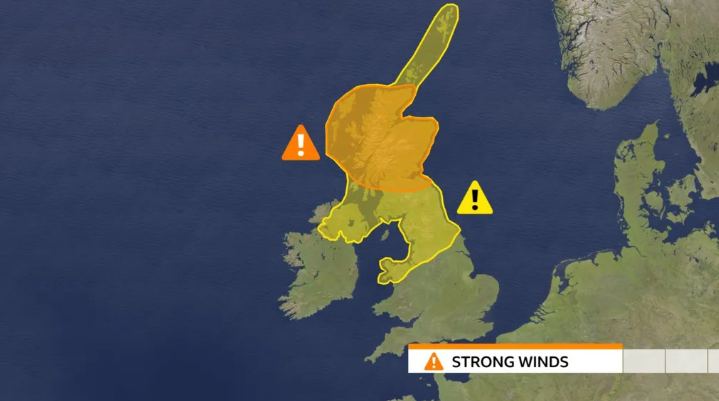Storm Floris Forces Emergency Infrastructure Response in the UK


Sources: newcivilengineer.com, theguardian.com, bbc.com
Want to read more like this story?

Storm Amy Triggers Building Collapse on Top of Car in Glasgow City Centre
Oct, 03, 2025 | NewsA partial building collapse occurred in Glasgow’s city centre on Friday, October 6th, as Storm Amy...
Highlands and Islands: multiple landslides among chaos ensued by strong winds and rain
Jan, 18, 2023 | NewsEngineers have worked to clear 100 tonnes debris from a landslide that closed the road and railway...

Solar Farms and Wind Turbines Tested and Failed by Storm Darragh
Dec, 09, 2024 | NewsStorm Darragh has highlighted the vulnerabilities of renewable energy infrastructure to extreme wea...
Worst ever summer storm hit the Netherlands
Jul, 06, 2023 | NewsStorm Poly, the most severe storm occurring during summer months, and overall strongest since Janua...

From Cracks to Collapse: The Impact of Storm Eowyn on Historic Structures
Jan, 26, 2025 | NewsThe destructive force of Storm Eowyn has left an indelible mark on the UK and Ireland, wreaking hav...

Cyclone Fina brings widespread infrastructure damage across Australia
Nov, 22, 2025 | NewsTropical Cyclone Fina swept past the Northern Territory with wind gusts exceeding 195 km/h, generat...

Storm Babet causes widespread damage in Ireland and the UK
Oct, 18, 2023 | NewsStorm Babet made landfall in the United Kingdom on the 18th of October and has since caused widespr...

Heritage Lost: Winter Storm Claims 175-year-old Ravenscourt Grade II Listed Building
Jan, 15, 2025 | NewsThe brutal winter storm sweeping through the UK and Europe has claimed its latest victim: the 175-...
Floods and landslides in Philippines: at least 45 fatalities
Oct, 31, 2022 | NewsThe Philippines has significantly revised down the death toll from a tropical storm ravaging the co...
Trending

Taipei 101’s impressive tuned mass damper

Characteristics of Load Bearing Masonry Construction

China Completes World’s Longest Expressway Tunnel, Redefining Connectivity

The Line at Neom faces feasibility reassessment while construction continues




